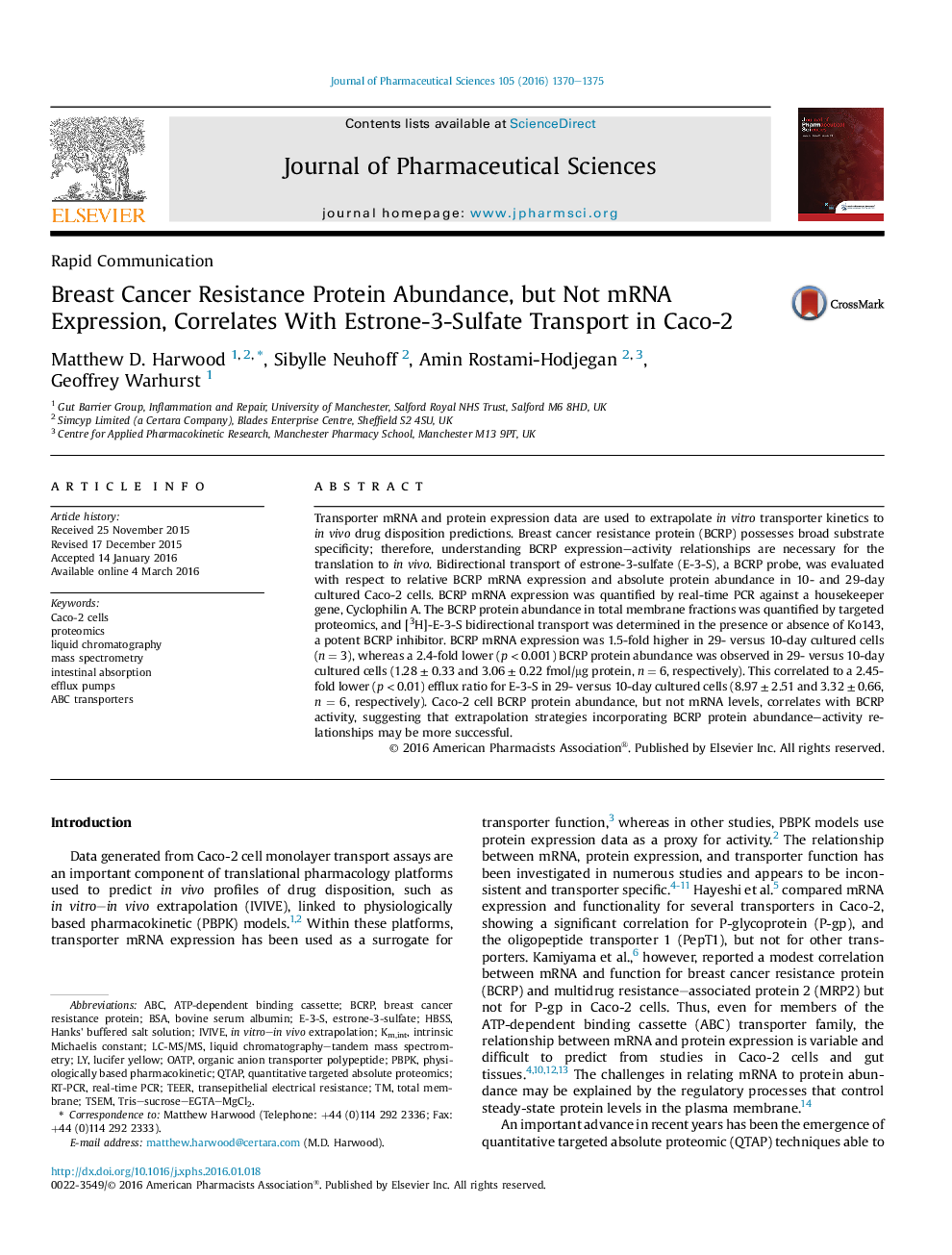| Article ID | Journal | Published Year | Pages | File Type |
|---|---|---|---|---|
| 2484481 | Journal of Pharmaceutical Sciences | 2016 | 6 Pages |
Abstract
Transporter mRNA and protein expression data are used to extrapolate in vitro transporter kinetics to in vivo drug disposition predictions. Breast cancer resistance protein (BCRP) possesses broad substrate specificity; therefore, understanding BCRP expression-activity relationships are necessary for the translation to in vivo. Bidirectional transport of estrone-3-sulfate (E-3-S), a BCRP probe, was evaluated with respect to relative BCRP mRNA expression and absolute protein abundance in 10- and 29-day cultured Caco-2 cells. BCRP mRNA expression was quantified by real-time PCR against a housekeeper gene, Cyclophilin A. The BCRP protein abundance in total membrane fractions was quantified by targeted proteomics, and [3H]-E-3-S bidirectional transport was determined in the presence or absence of Ko143, a potent BCRP inhibitor. BCRP mRNA expression was 1.5-fold higher in 29- versus 10-day cultured cells (n = 3), whereas a 2.4-fold lower (p < 0.001) BCRP protein abundance was observed in 29- versus 10-day cultured cells (1.28 ± 0.33 and 3.06 ± 0.22 fmol/μg protein, n = 6, respectively). This correlated to a 2.45-fold lower (p < 0.01) efflux ratio for E-3-S in 29- versus 10-day cultured cells (8.97 ± 2.51 and 3.32 ± 0.66, n = 6, respectively). Caco-2 cell BCRP protein abundance, but not mRNA levels, correlates with BCRP activity, suggesting that extrapolation strategies incorporating BCRP protein abundance-activity relationships may be more successful.
Keywords
PBPKorganic anion transporter polypeptidein vitro–in vivo extrapolationHanks' buffered salt solutionIVIVEOATPTEERBcrpABCHBSSRT-PCRBSALC-MS/MSReal-time PCRbovine serum albuminestrone-3-sulfateIntestinal absorptionABC transportersCaco-2 cellsMass spectrometryPhysiologically based pharmacokineticlucifer yellowtransepithelial electrical resistanceProteomicsbreast cancer resistance proteinEfflux pumpsliquid chromatographyliquid chromatography–tandem mass spectrometry
Related Topics
Health Sciences
Pharmacology, Toxicology and Pharmaceutical Science
Drug Discovery
Authors
Matthew D. Harwood, Sibylle Neuhoff, Amin Rostami-Hodjegan, Geoffrey Warhurst,
